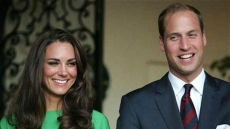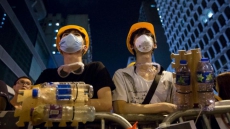The US government has announced new monitoring guidelines for people who have been exposed to the Ebola virus disease in an attempt to create a single national response measure against the more restrictive ones adopted by several states.
The Centres for Disease Control and Prevention (CDC) has drawn up a classification system depending on the risk of having contracted the disease, where only those at "high risk" would be isolated.
According to the new federal guidelines released Monday, most of the cases, such as health workers returning from Ebola-affected countries, would fall under the intermediate category where individuals would have to undergo checkups at a local hospital and report their body temperature to authorities over the telephone.
If they do not display any preliminary symptoms, such as fever, vomiting or diarrhea, their movement would not be restricted.
Last week, the states of New York and New Jersey, later followed by Florida, Illinois and Georgia, adopted strict measures to quarantine any returning Ebola worker for 21 days even if they did not show signs of the disease.
The unilateral measures were criticised by the White House and others for stigmatising health workers and dissuading them from volunteering to go to Africa to help stem the epidemic.
In response, New York Governor Andrew Cuomo and his New Jersey counterpart, Chris Christie, lambasted the new measures by arguing that the priority was to ensure the health of US citizens.
Christie accused the CDC of falling behind in its response to the Ebola threat and said that the people of his state wanted a more convincing action to prevent the spread of the disease.
Cuomo criticised the new directives even before knowing the details of their content.
"I work with the federal government, but I disagree with the CDC. My number one job is to protect the people of the state of New York," he told reporters.
At a press conference Monday, White House spokesperson Josh Earnest defended the protocols laid down by the CDC, insisting that they were based on scientific evidence regarding Ebola and the organisation's prior experience of similar outbreaks of the virus.
However, he recognised the authority of the state and local governments to enforce measures to quarantine health personnel if they consider it necessary.





